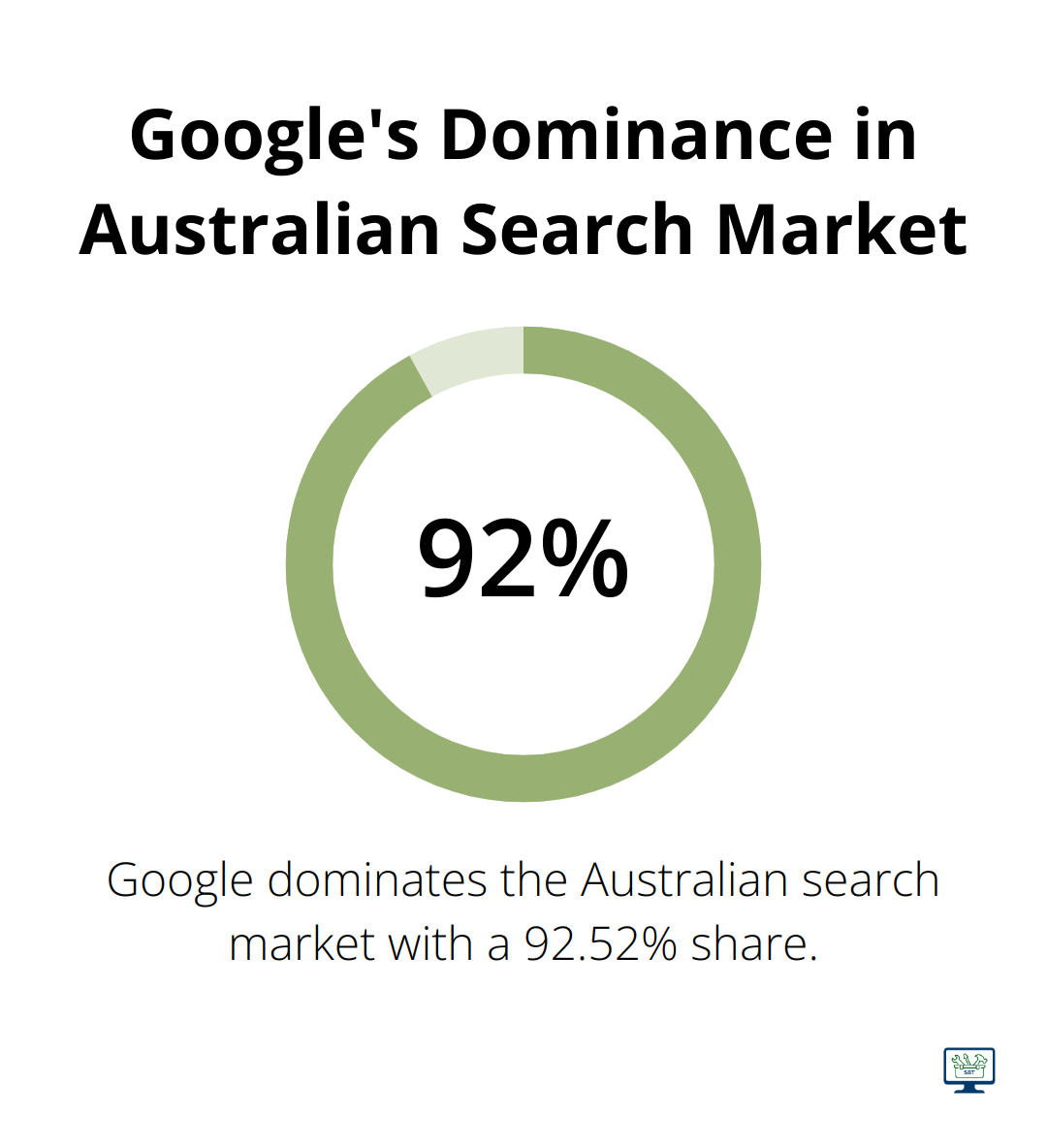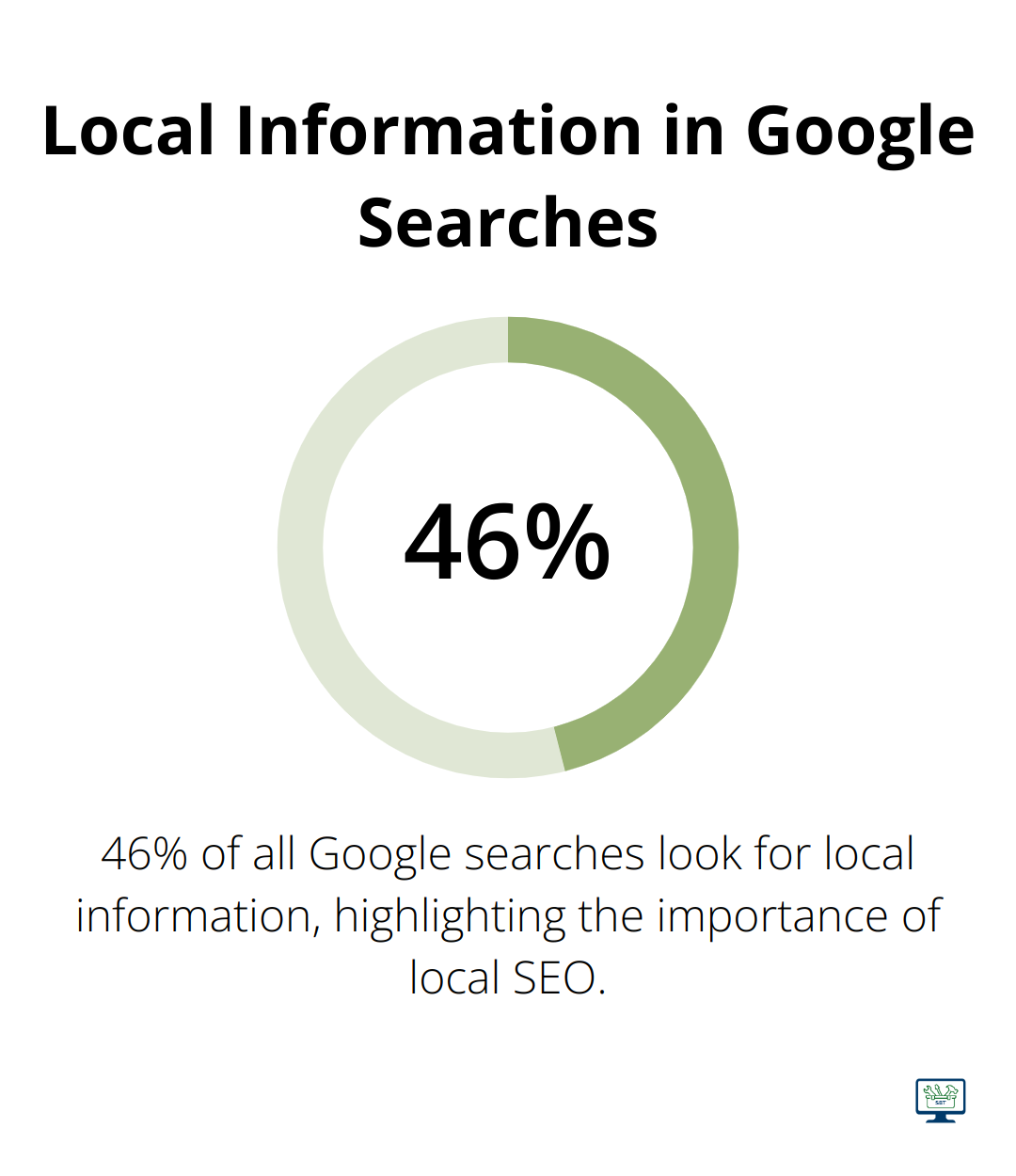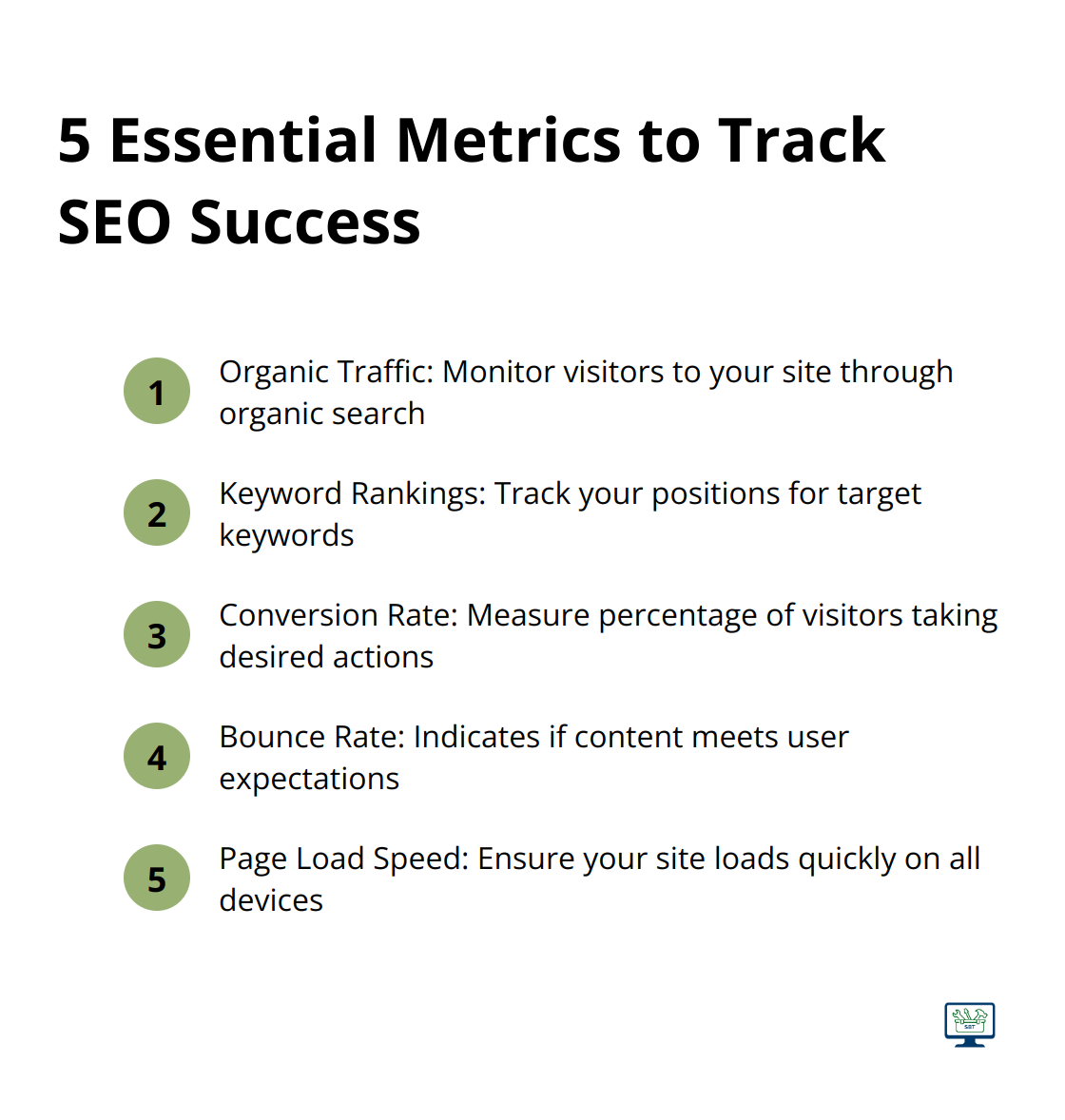SEO for Small Businesses in Australia [Your Guide]
![SEO for Small Businesses in Australia [Your Guide]](https://websitestrategies.com.au/wp-content/uploads/emplibot/seo-for-small-businesses-australia-1748805309.jpeg)
Published On Jun 01,2025
SEO for small businesses in Australia is a game-changer in today’s competitive digital landscape. At WebsiteStrategies, we’ve seen firsthand how effective search engine optimisation can transform local enterprises.
This guide will equip you with practical strategies tailored specifically for Australian small businesses. We’ll cover everything from local search optimisation to measuring your SEO success, helping you outrank competitors and attract more customers.
What Is SEO and Why Does It Matter for Australian Small Businesses?
Definition and Importance of SEO
Search Engine Optimisation (SEO) improves a website’s visibility in search engine results. For Australian small businesses, it serves as a powerful tool to attract local customers without the high costs of traditional advertising.
The Australian SEO Landscape
In Australia, SEO has unique characteristics. Google dominates the search market with a 92.52% share. This dominance means Australian businesses should focus primarily on Google’s algorithms and guidelines.

Australian searchers often use location-specific terms. They might search for “plumber in Sydney” rather than just “plumber”. This trend highlights the importance of local SEO strategies for small businesses.
Common SEO Misconceptions
Many small business owners believe SEO is too complex or expensive. This isn’t true. Basic SEO practices like optimising your Google Business Profile and creating location-specific content can yield significant results.
Another misconception is that SEO is a one-time effort. In reality, it requires ongoing attention. Search engines constantly update their algorithms, and competitor strategies evolve. Regular updates and monitoring are essential for maintaining and improving search rankings.
SEO’s Impact on Small Businesses
SEO can level the playing field for small businesses competing against larger corporations. A well-optimised website can outrank bigger competitors for specific local searches.
SEO vs Paid Advertising
While paid advertising can provide quick results, SEO offers long-term benefits. Once your website ranks well organically, you continue to receive traffic without ongoing ad spend. This makes SEO a cost-effective strategy for small businesses with limited marketing budgets.
However, SEO takes time. Most businesses start seeing results within 3-6 months, but this can vary based on competition and industry. Patience and consistent effort are key to SEO success.
Mobile Optimisation: A Critical Factor
With 63.08% of global web traffic coming from mobile devices, mobile optimisation is crucial for Australian small businesses. Google uses mobile-first indexing, meaning it primarily uses the mobile version of a site for ranking and indexing.
Ensuring your website loads quickly and displays correctly on mobile devices isn’t just good for SEO – it’s essential for user experience. Google reports that 53% of mobile site visits are abandoned if pages take longer than three seconds to load.
Now that we understand the importance of SEO for Australian small businesses, let’s explore the essential strategies you can implement to improve your online visibility and attract more customers.
How to Implement Effective SEO Strategies for Australian Small Businesses
Australian small businesses face unique challenges in the digital landscape. SEO strategies tailored for the Australian market can boost online visibility and attract more local customers. Let’s explore these strategies that will help you outperform your competitors and grow your business.
Optimise for Local Search
Local search optimisation is essential for small businesses in Australia. Start by adding & verifying your business on Google Business Profile. Ensure your business name, address, and phone number (NAP) are consistent across all online platforms. Include location-specific keywords in your website content, meta descriptions, and title tags.
BrightLocal reports that 46% of all Google searches look for local information. This statistic underscores the importance of local SEO for small businesses.

To capitalise on this trend, create location-specific landing pages for each area you serve. For example, if you’re a plumber in Sydney, create separate pages for different suburbs you operate in.
Create High-Quality, Locally-Relevant Content
Content reigns supreme in SEO, but for Australian small businesses, locally-relevant content takes the crown. Create blog posts, articles, and videos that address local issues, events, or news. This approach not only helps with SEO but also positions you as a local authority.
A study by SEMrush found that long-form content (3000+ words) gets 3 times more traffic, 4 times more shares, and 3.5 times more backlinks than shorter articles. However, quality trumps quantity. Focus on creating comprehensive, valuable content that answers your local audience’s questions.
Build a Strong Backlink Profile
Backlinks remain a critical ranking factor. However, for Australian small businesses, the focus should be on quality local backlinks rather than sheer quantity. Seek opportunities to get featured in local business directories, chambers of commerce websites, and local news outlets.
Ahrefs reports that the top-ranking page on Google gets, on average, 3.8 times more backlinks than the pages ranking at positions 2-10. To build your backlink profile, consider partnering with other local businesses for cross-promotion, sponsoring local events, or contributing guest posts to relevant local blogs.
Improve Website Speed and Mobile-Friendliness
Website speed and mobile-friendliness are critical for SEO success. Google’s PageSpeed Insights tool can help you identify and fix speed issues. Google states that 53% of mobile site visits are abandoned if pages take longer than three seconds to load.
Optimise your images, leverage browser caching, and consider using a content delivery network (CDN) to improve your site’s speed. For mobile-friendliness, ensure your site has a responsive design that adapts to different screen sizes.
Leverage Social Media for SEO
While social media signals don’t directly influence rankings, they indirectly impact SEO. Active social media profiles can increase brand visibility, drive traffic to your website, and create opportunities for backlinks.
Hootsuite reports that 52% of online brand discovery happens on social media. For Australian small businesses, platforms like Facebook and Instagram are particularly effective. Share your content on these platforms, engage with your audience, and use location tags to increase local visibility.
Implementing these SEO strategies requires time and effort, but the results can transform your online presence. As you apply these tactics consistently, you’ll see improvements in your search rankings and attract more local customers. The next step is to measure the success of your SEO efforts and make data-driven decisions to refine your strategy.
How to Measure SEO Success for Small Businesses
Small businesses in Australia must track specific KPIs to gauge their SEO success. Focus on these essential metrics:

- Organic Traffic: Monitor the number of visitors to your site through organic search. Google Analytics is a free web analytics service offered by Google that allows you to track and analyse data about your website’s visitors.
- Keyword Rankings: Track your positions for target keywords. Tools like Ahrefs or SEMrush offer this functionality (but come with a cost).
- Conversion Rate: Measure the percentage of visitors who take desired actions on your site (e.g., making a purchase or filling out a contact form).
- Bounce Rate: A high bounce rate might indicate that your content doesn’t meet user expectations.
- Page Load Speed: Use Google PageSpeed Insights to ensure your site loads quickly on all devices.
Interpreting Your SEO Data
After you track these KPIs, you must make sense of the data. Look for trends over time rather than day-to-day fluctuations. For example, a steady increase in organic traffic month-over-month suggests your SEO efforts are effective.
Identify which pages perform best. These high-performing pages can provide insights into the type of content that resonates with your audience.
Adjusting Your SEO Strategy
Your data will guide necessary strategy adjustments. If certain keywords underperform, consider targeting different ones. A high bounce rate calls for improved content quality and user experience.
SEO requires ongoing effort. What works today might not work tomorrow due to algorithm changes or shifts in user behaviour. Maintain flexibility and adapt your strategy as needed.
The Role of Local SEO Metrics
Local SEO metrics hold particular importance for Australian small businesses. Monitor your Google Business Profile insights, including how often your profile appears in searches and the actions users take (such as clicking for directions or calling your business).
Also, track your performance in local pack results (the map-based results that often appear for location-specific searches). Improved visibility here can significantly boost your local customer base.
Tools for SEO Measurement
Several tools can help you measure your SEO success:
- Google Analytics: This free tool provides comprehensive website traffic data.
- Google Search Console: Use this to monitor your site’s search performance and fix issues.
- SEMrush or Ahrefs: These paid tools offer in-depth keyword and competitor analysis.
- Screaming Frog: This tool crawls your website to identify technical SEO issues.
WebsiteStrategies offers comprehensive SEO audits that translate complex technical findings into actionable steps. This service can provide valuable insights for businesses looking to improve their SEO performance.
Final Thoughts
SEO for small businesses in Australia transforms online presence and drives sustainable growth. Effective SEO starts with understanding the local market, optimising for local search, and creating high-quality content that resonates with Australian audiences. A fast, mobile-friendly website improves both user experience and search engine rankings.
SEO benefits extend beyond improved search rankings to increased organic traffic and higher conversion rates. Unlike paid advertising, SEO results compound over time, providing a steady stream of leads long after the initial work (this requires ongoing effort and adaptation). Staying informed about algorithm updates and monitoring performance metrics allows for necessary strategy adjustments.
WebsiteStrategies specialises in helping Australian small businesses navigate SEO complexities. Our tailored strategies can provide a clear roadmap to improve online visibility and drive growth. SEO for small businesses in Australia is not just about keeping up with competition – it’s about standing out and thriving in the digital age.
